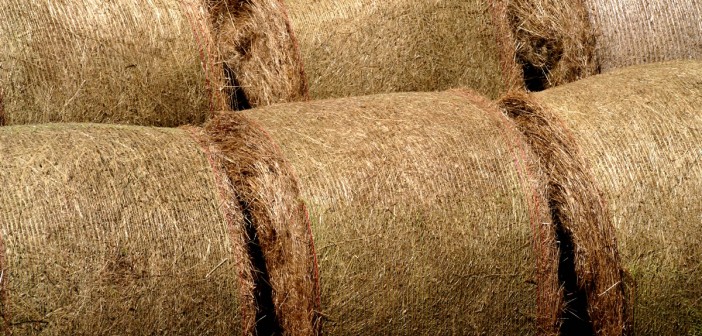The combination of a poor 2017 harvest and increased demand from straw-burning power stations is behind the current ‘severe shortages’ of straw, according to the president of the British Hay & Straw Merchants Association (BHSMA).
Mike Evison said most suppliers remained confident of fulfilling contracts, although there is currently very little surplus.
The shortages have resulted in soaring prices since the autumn. The latest weekly figures from the BHSMA, which can be viewed here, show average barley prices have reached three figures in the South West (£105/tonne) and Wales (£100/t). Elsewhere, prices generally range from £87/t to close to the £100/t mark, with a low of £75/t in the South East.
Wheat is not far behind ranging from £70/t in the South East to a high of £91/t in the South West. After months of steady increases, prices are typically at double the levels of a year ago.
In a letter to the farming press sent following a meeting of the association, Mr Evison said a combination of events which have exacerbated the situation.
‘It was generally agreed the overall yield of straw from the last cereal crop harvest was a third down on the normal average,” he said.
“This was caused by poor growing conditions and the situation was made worse with prolonged wet periods during harvest. The consequence of this was that many farmers who usually lay down straw to be baled decided to chop as the likelihood of having it baled quickly was remote.
“Unfortunately, the above situation was not helped by an increasing demand for straw over the last two or three years. There are now four power stations requiring nearly a million tonnes of straw and demand from the continent has steadily increased in recent years.
“Many of our members supply straw on contract and most of those attending felt they would for fill their obligations – however they have very little surplus for the usual winter spot trade.”
The meeting concluded that as long as the normal straw yield was achieved this year, supplies would meet demand and the price would stabilise at sensible figures after next harvest.
“Records over the last 28 years indicated there has only been one other severe straw shortage year,” Mr Evison added.
The Animal and Plant Health Agency has warned that shortages of straw could result in health problems on pig farms unless alternatives are found and issued advice to farmers on how to cope with shortages.




